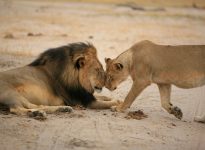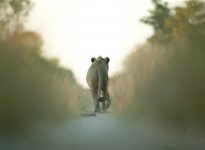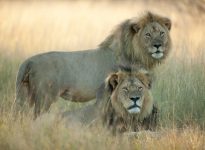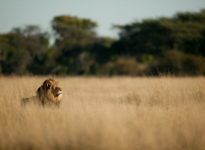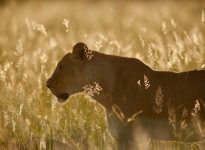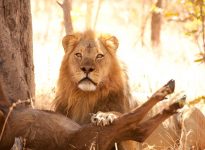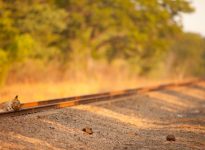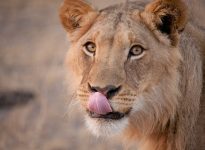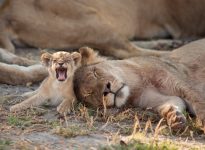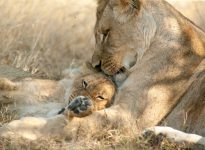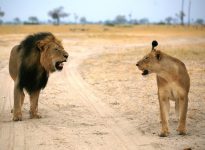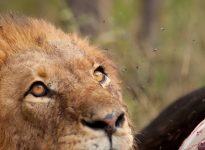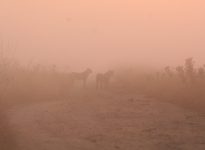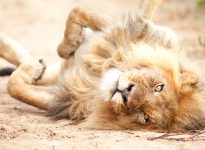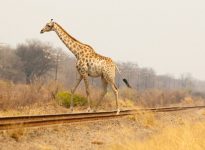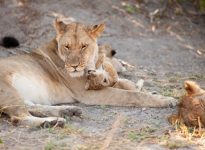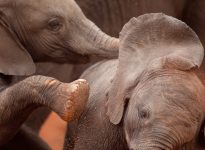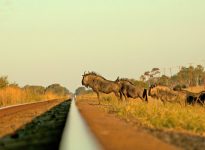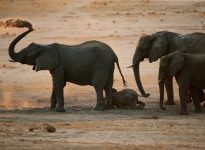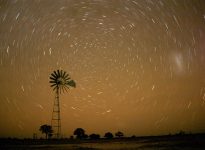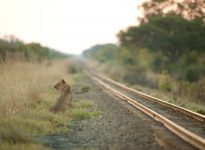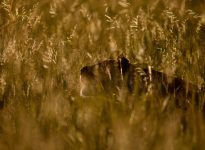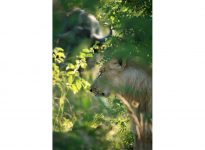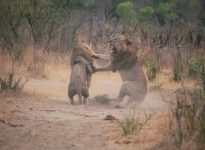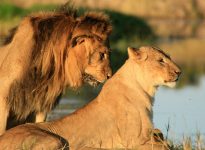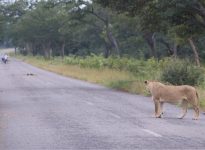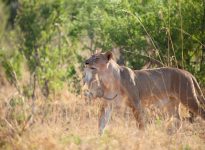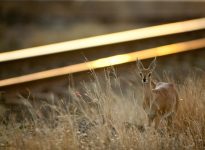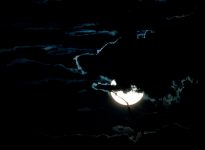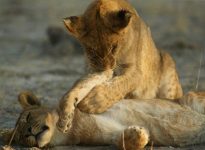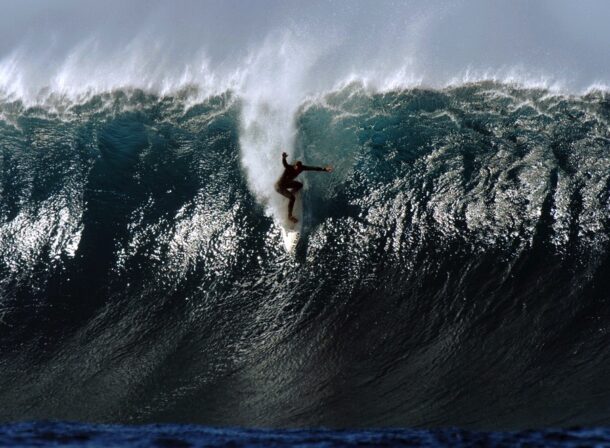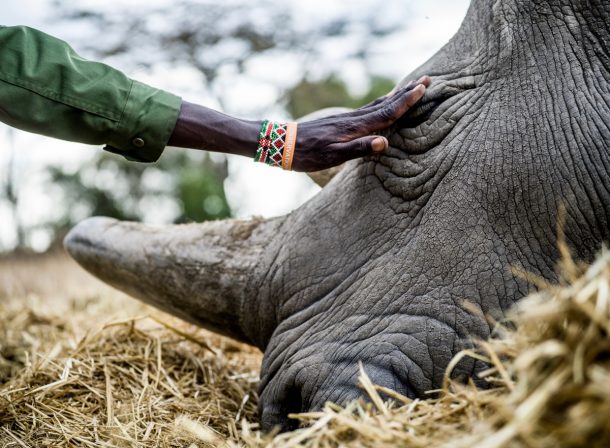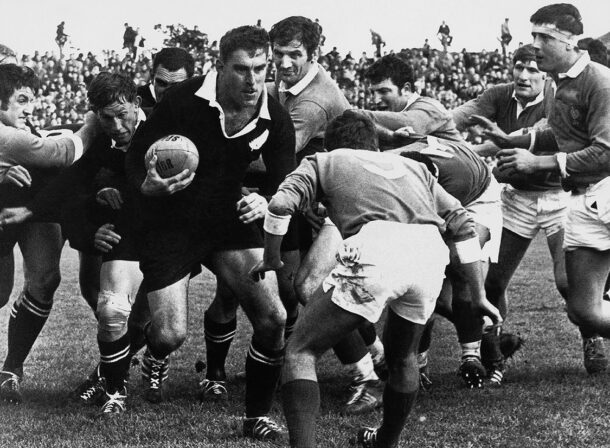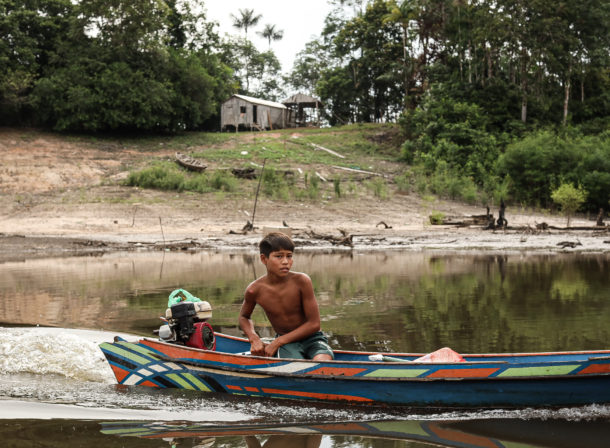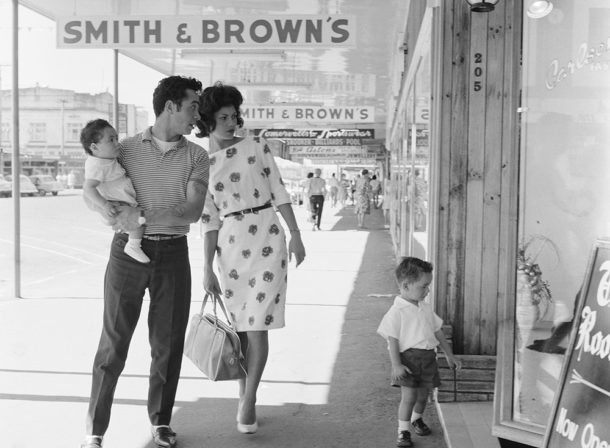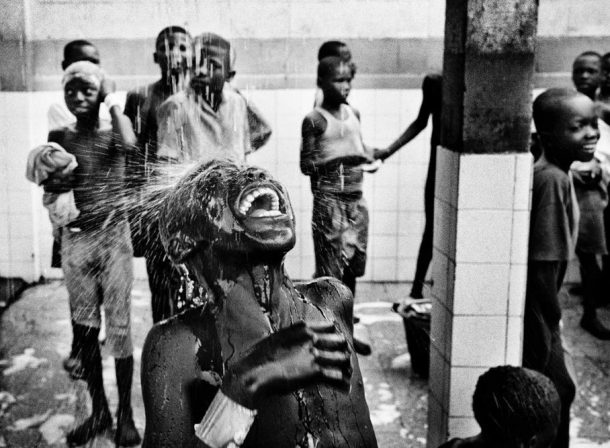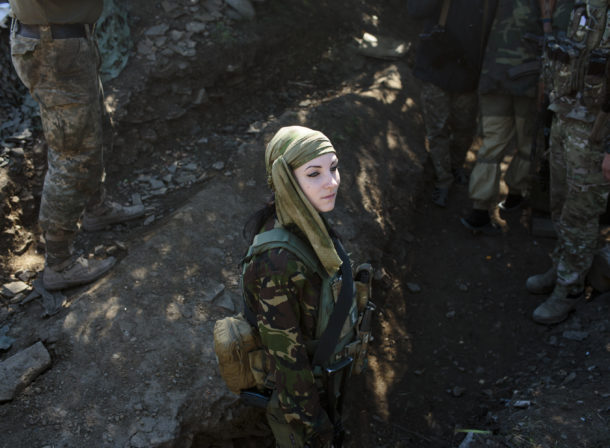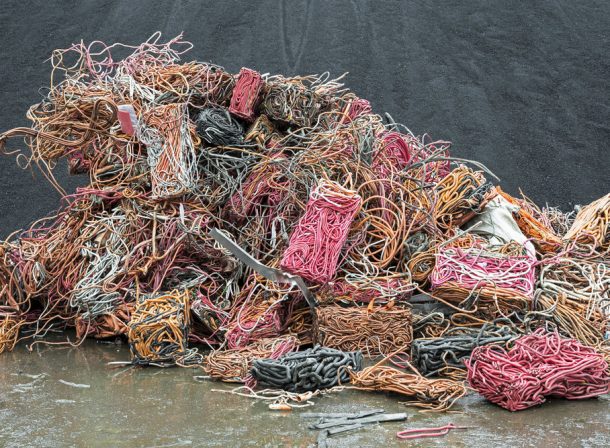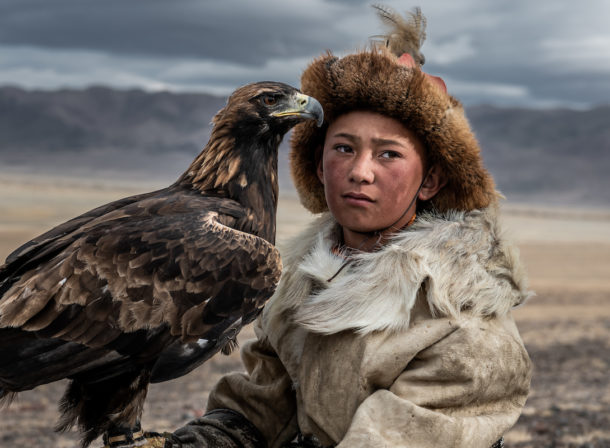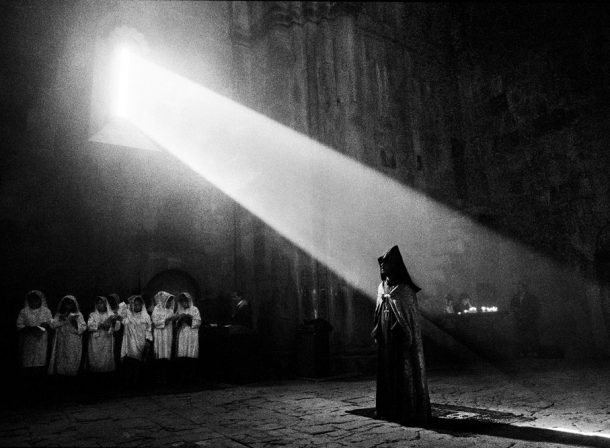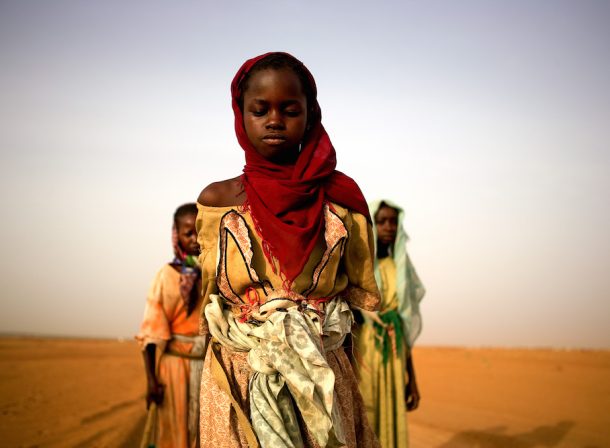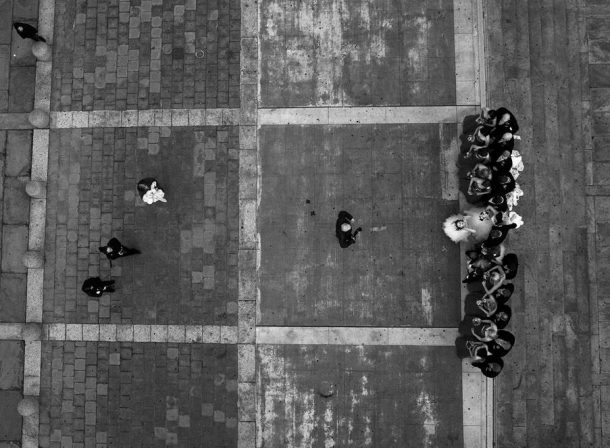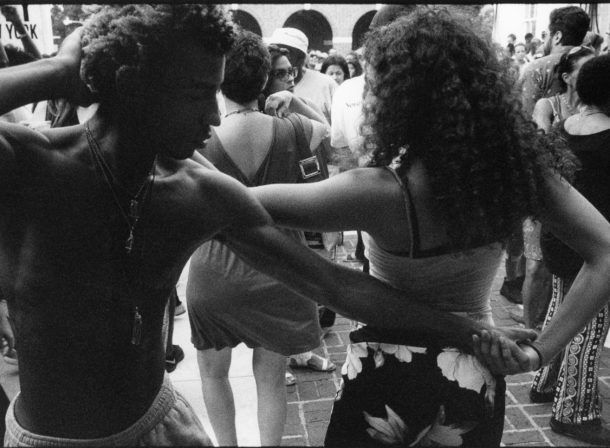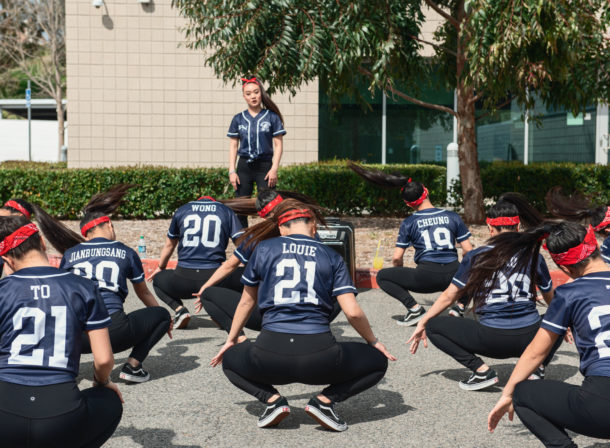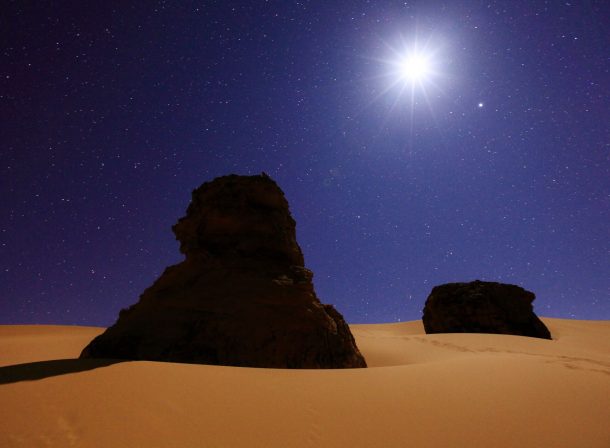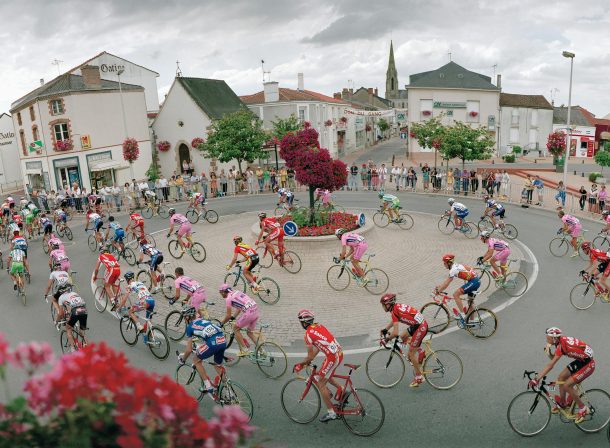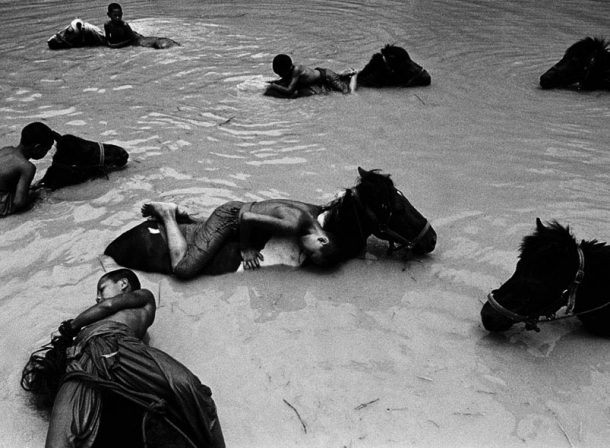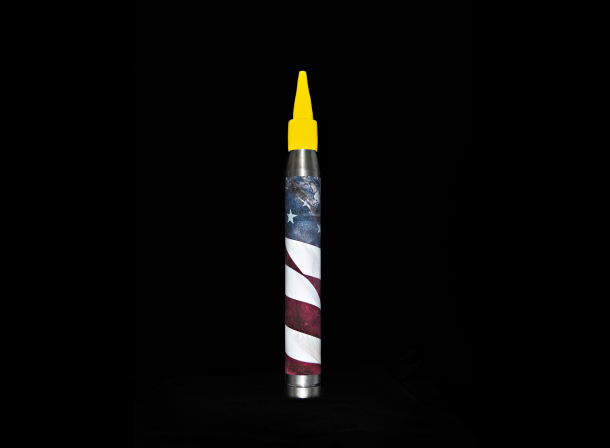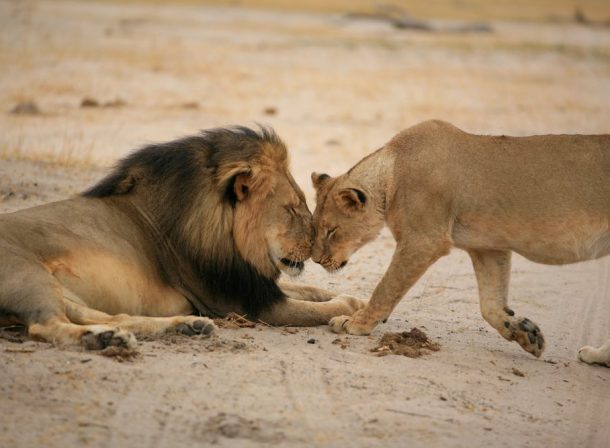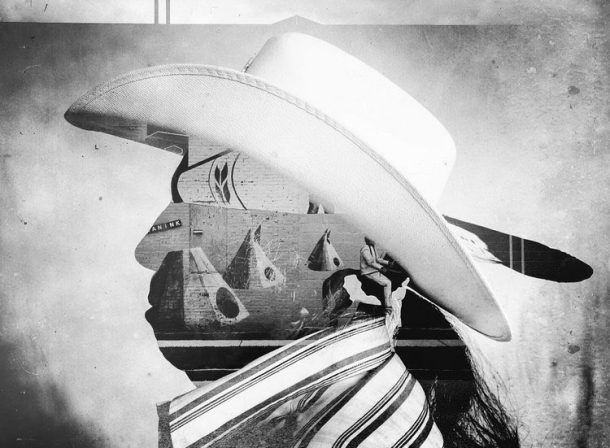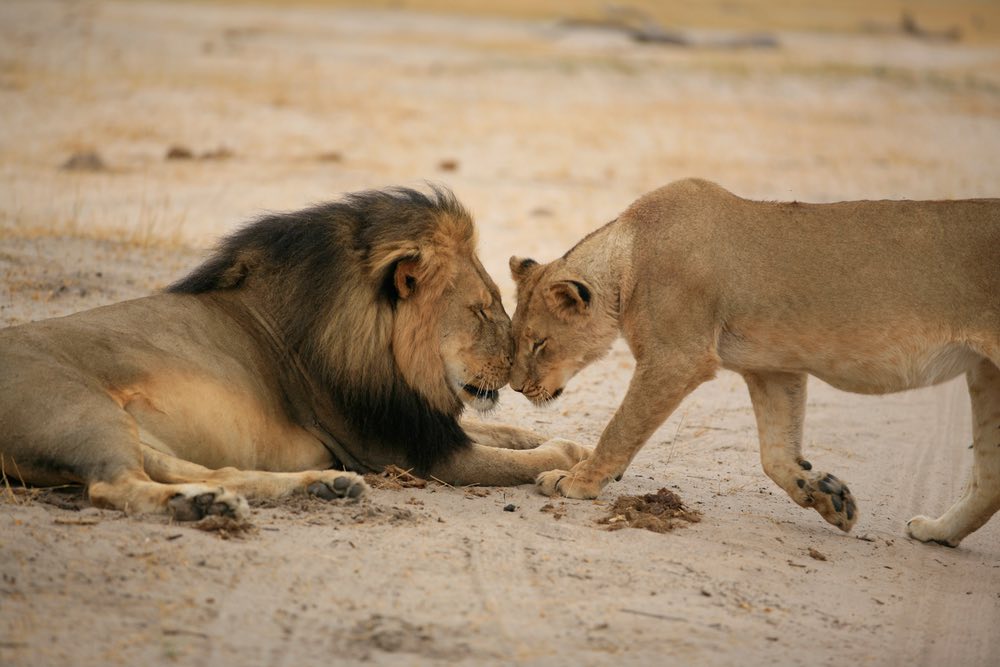
BIOGRAPHY
Brent Stapelkamp (b. 1977) is devoted to finding ways for people and wildlife to sustainably coexist. Born in Zimbabwe, Brent has long had a passion for lions. His first job was serving as a safari guide in Hwange National Park. From there, he left Hwange for the UK, where he studied Wildlife Management. In 2006, Brent joined Oxford University’s Hwange Lion Research Project, where he has been studying lions in the wild.
Brent found himself at the epicenter of the “Cecil Storm” in 2015, as he was the last person to collar and photograph Cecil. His images have been published on National Geographic’s PROOF, the BBC, CNN and The Telegraph, among others. His photography of Cecil will be published in an upcoming book in late April 2016.
He currently lives “off-grid” on the boundary of the national park with his wife Laurie and son Oliver.
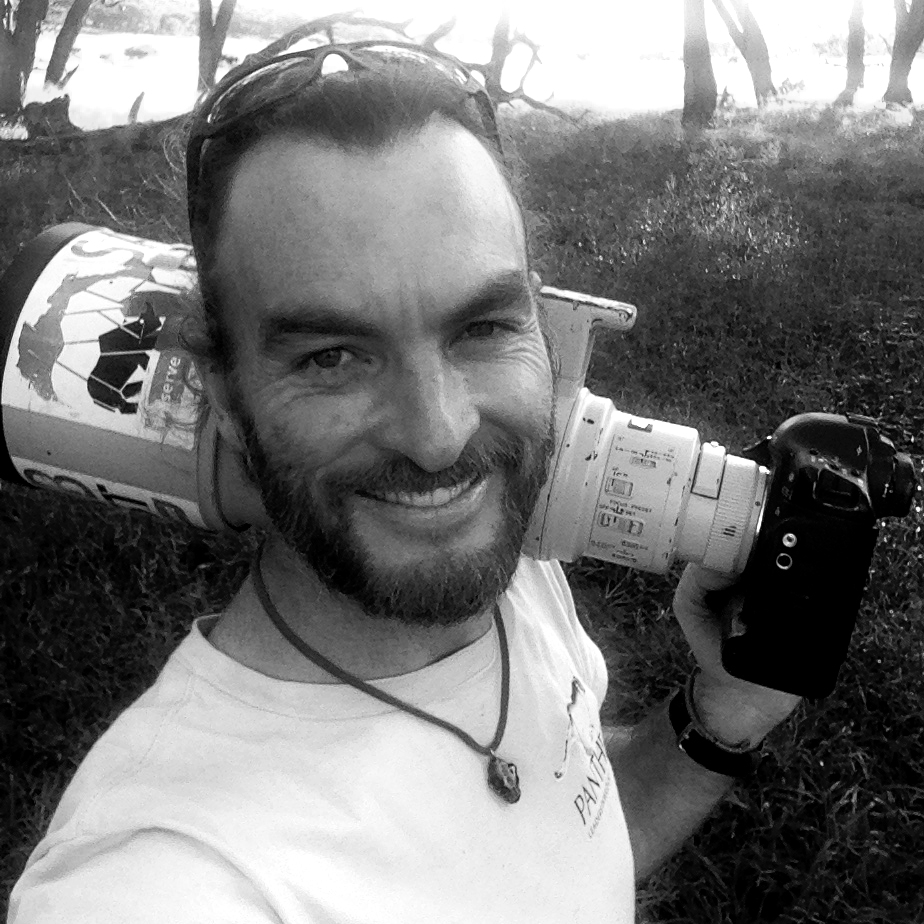
HWANGE: CECIL’S KINGDOM
April 3 – May 29, 2016
Brent Stapelkamp has served as a lion researcher with Oxford University’s Wildlife Conservation Research Unit for the past 10 years. He found himself at the epicenter of the “Cecil Storm” in 2015, as he was the last person to collar and photograph the beloved lion in Zimbabwe’s Hwange National Park. Anastasia Photo began their relationship with Brent in 2013 by providing the funds for the Hwange Lion Research Project to purchase tracking collars. Cecil was wearing his tracking collar the day he was lured off camp and senselessly slaughtered.
The exhibition is a record of Hwange National Park’s inhabitants and their precarious position in a world of infrastructure and boundaries. “Thousands of hours in the company of lions meant I got a unique perspective of their lives and the threats that they face,” says Stapelkamp. Hwange’s only boundary between protected territory and legal hunting grounds is a railway line. It was this railroad that Cecil was lured over before meeting his death. Brent is devoted to finding ways for people and wildlife to sustainably coexist. His body of work encourages viewers to realize these animals’ increasingly challenging place in the world. These and other select works have been published in National Geographic’s PROOF, the BBC, CNN and The Telegraph, among others.
As a result of the media and documentation surrounding Cecil’s killing, an international outcry pushed 42 airlines to reaffirm bans on wildlife trophy shipments on their carriers. The U.S. Fish and Wildlife Service have listed lions in central and West Africa as endangered, and those in southern and East Africa as threatened, and trophies of endangered lions are prohibited in the United States.

